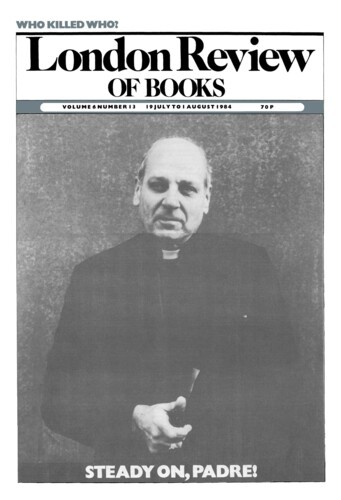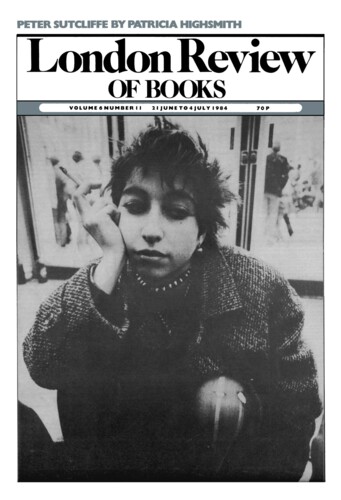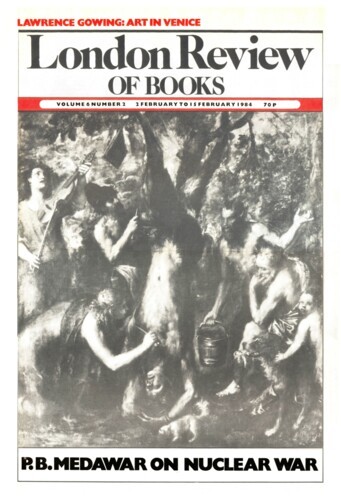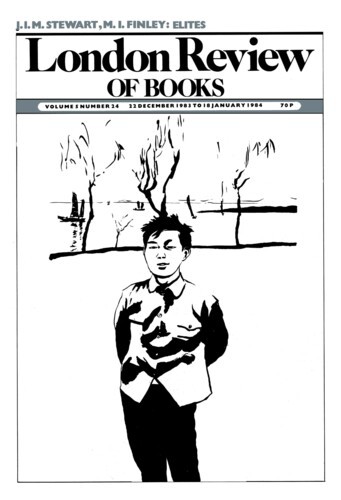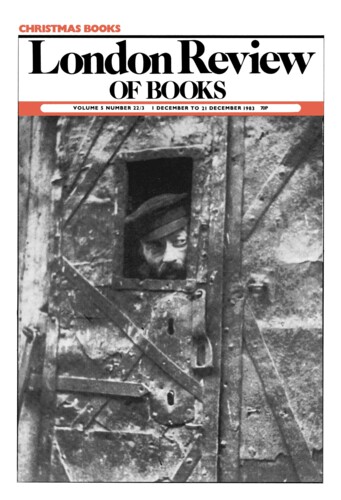Anger and Dismay
Denis Donoghue, 19 July 1984
A few weeks ago I gave a lecture at Reading, to a Conference of Higher Education Teachers of English. My visit was brief, but long enough to reinforce my sense that teaching English has become a heavy duty. It seems to be a long drag before you get to the point of reading any literature. In the olden days a critic speaking to that Conference would have talked about a poem or a novel. I recall F.W. Bateson talking about ‘Westron Wind, when wilt thou blow’: we all assumed that this was the kind of thing we should be doing in class. Bateson went pretty directly to the poem; he didn’t examine the referential claims of language, the validity of literature as an institution, the university as an instrument of power, the authority of a literary canon, male domination in English grammar, the alleged speciousness of logocentrism, or the several theories of hermeneutics. We knew, having read Bateson’s books, that he had political attitudes: he didn’t regard linguistic acts as pure or ideologically disinterested. But he didn’t think he had to keep clearing the ground or clearing himself before coming to ‘Westron Wind’. There were, indeed, arguments at those conferences, but they were about critical methods. L.C. Knights gave us a lecture which might have been called – and perhaps was – ‘How many children has Lady Macbeth now?’ But he took enough intellectual lore for granted to get pretty quickly to Hamlet or Coriolanus. If Bateson or Knights had been lecturing to the Conference at Reading, I don’t think they would have reached a poem or a play: political entanglements, disguised as theoretical issues, would have kept them back from it.–
